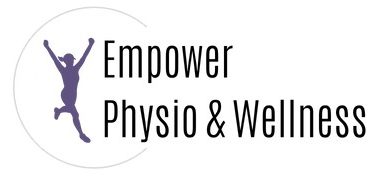My last blog post was all about the important role protein plays in making your workouts more effective. It’s a critical nutrient for our bodies to be strong and perform well every day. Today, I want to take a deeper dive into the benefits of protein for menopausal women and how you can set yourself up for success as you age.
What is perimenopause?
Perimenopause literally means “around menopause” and typically affects women between the ages of 46 and 52. During this time period, estrogen levels in the body fluctuate by either becoming higher or lower and women’s menstrual cycles become irregular causing symptoms like hot flashes, difficulty sleeping, and vaginal dryness. Once a woman has gone 12 months without a period, they’ve officially reached menopause. Their estrogen levels are very low and remain that way through post-menopause ( and after menopause too). Most women spend a third of their lives in this post-menopausal stage.1
What happens to bones and muscles during menopause?
As we age, we tend to lose muscle mass and bone mineral density. This is largely due to the reduction of estrogen in women and testosterone in men. In the first 6 years of menopause, researchers estimate that women lose approximately 2% of their bone mineral density and 0.5-1% each subsequent year.2 Additionally, each year after menopause, women lose approximately 0.6% of their muscle mass.3
Why does this happen? It’s tied to estrogen, the primary female sex hormone. As estrogen levels drop during menopause, there is less of a signal to keep building new bone and muscle, causing breakdowns.
Since bone density and muscle mass are directly related, higher muscle mass means a higher bone mineral density. In other words, by building strong muscles, you’re also building strong bones. The flip side is also true. People with less muscle mass tend to have a lower bone density.
How to maintain strength as you age
Don’t let the statistics I shared discourage you because there are things you can do to keep your muscles and bones strong and healthy for life! Research shows that both exercise and diet, specifically adequate protein intake are effective ways to delay, slow, and even reverse bone density and muscle mass loss during the perimenopause, postmenopause, and aging processes.2
When it comes to exercise, the best option for women in perimenopause or postmenopause is strength training. You need resistance training either with body weight, bands, or weights focused on building muscle. This will obviously help reduce the loss of muscle mass, but it also builds bone density at the same time. Remember, muscle mass and bone density are directly related. There is a principle called Wolff’s Law stating that bones respond to the load they are exposed to. Guess what? Strength training puts load on bone! So this is a stimulus to the bone to also get stronger along with muscle.2
Here’s another really important point regarding strength training for women who aren’t anywhere near menopause age: start building muscle mass and bone density EARLY in life. Women build most of their bone density by age 30. If you can rack up as much bone strength as possible early in life, you’re going to be better off for decades to come.
When you start with high bone density, losses later in life will not be as drastic and you’ll be less likely to develop osteoporosis and fractures. Start with low bone density and you’ll be more at risk to develop osteoporosis and sustain fractures. Share this advice with your friends, daughters and granddaughters!
Protein consumption to keep your bones strong
Now let’s talk about protein. Why is it so important? For starters, protein allows your muscles to get stronger. That’s because protein increases IGF-1 (insulin-like growth factor 1) in the bloodstream. Think of protein and IGF-1 like Batman and Robin. When more protein is present, more IGF-1 is present, which in turn helps you build muscle more effectively. As a bonus, IGF-1 also increases bone density and reduces the breakdown of bone. That’s a triple-whammy effect!
Protein also increases the absorption of calcium and phosphorus in the gut. That’s another win for bone health. The average recommendation for protein intake in the general population is 0.8-1.2g/kg of body weight or between 1.5-1.8g/kg of body weight for women around menopause age.
And it’s not just about quantity. The quality of your protein matters just as much! Animal proteins are most readily absorbed by the body, but make sure the animal proteins are high quality. Look for meats and dairy products that are organic, grass-fed or grass-finished and come from happy, free-range animals. If you’re vegan or vegetarian, you can get great protein from plant sources as well. Be sure you’re eating a variety of plant proteins and amino acids. Some research indicates that increased amounts of the amino acid Leucine could be beneficial for women going through menopause. Leucine can be found in protein powders and also in supplement form2.
Good sources of protein
- Eggs
- Grass-fed meat (chicken, beef, turkey)
- Fish and seafood
- Quinoa
- Beans
- Almonds and nut butters
- Cottage cheese
- Greek yogurt
- High-quality protein powder
Recommended protein powder
I’m a huge fan of using high-quality protein powder in your daily nutrition routine. You can mix it with water, your favorite milk alternative, or blend it with a smoothie for a well-balanced meal. The thing to remember is that not all protein powders are made the same. There are a lot of great ones out there, and a lot of crappy ones too.
My favorite is the PropelloLife protein powder. This local Columbus-based company was started by two dads who wanted to create nutritious supplements they could feed their families. They have both plant-based and whey protein. The whey is sourced from New Zealand cows. New Zealand has the highest dairy standards in the world, so this is a super clean, high-quality, and nutritious source of protein. Use discount code EMPOWER each time you check out to save some money!
Now here is the thing I really want to hit home for you. You need both PROTEIN AND RESISTANCE EXERCISE to get the most out of all these potential benefits. Without enough protein, resistance training isn’t fully effective. Without resistance training, adequate protein intake isn’t fully effective. They both need each other, just like Sonny and Cher! 2,3
Want to come up with a customized game plan to bulletproof your body as you age? Let’s chat.
References
1. https://www.mayoclinic.org/diseases-conditions/perimenopause/symptoms-causes/syc-20354666#



